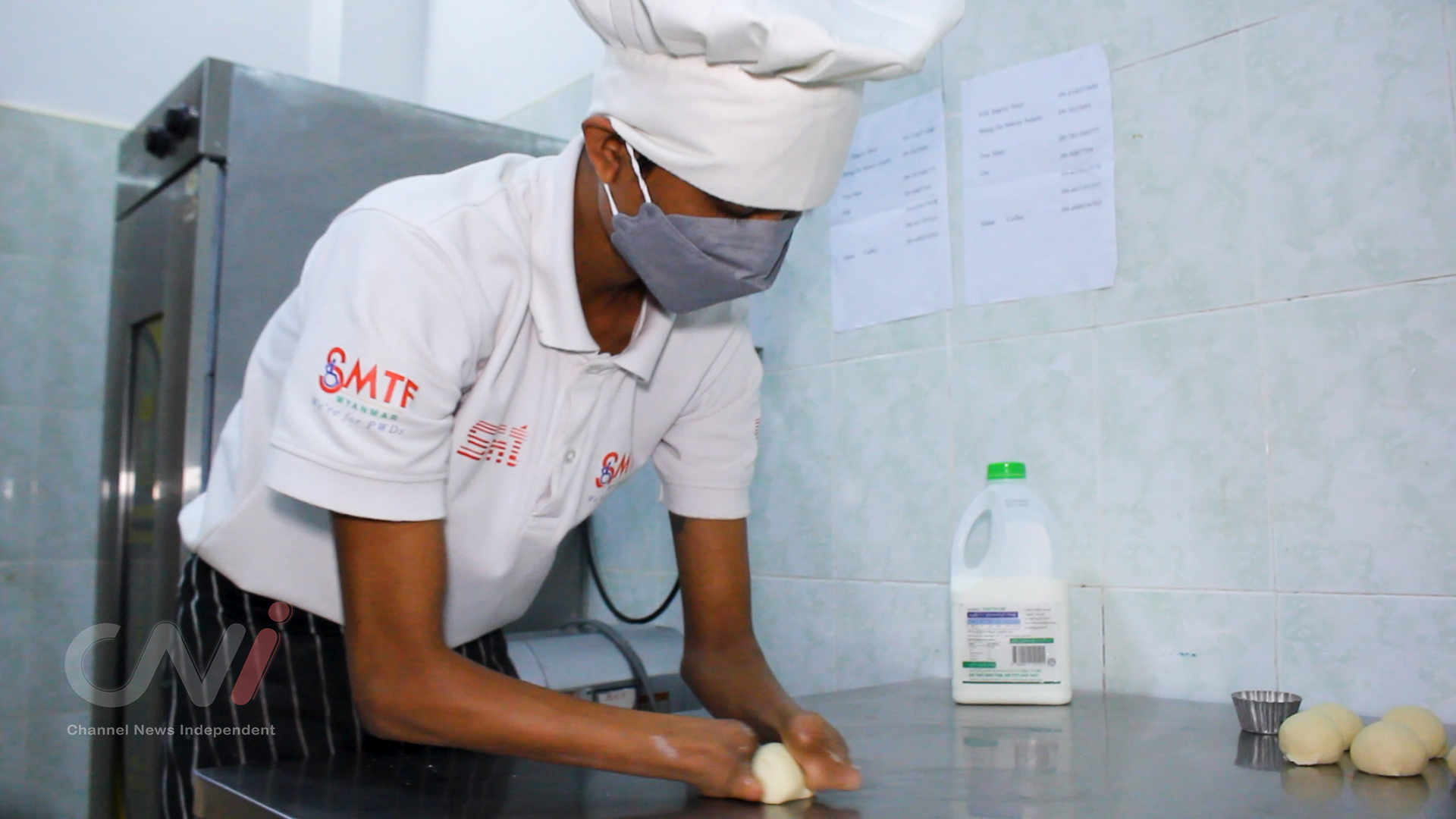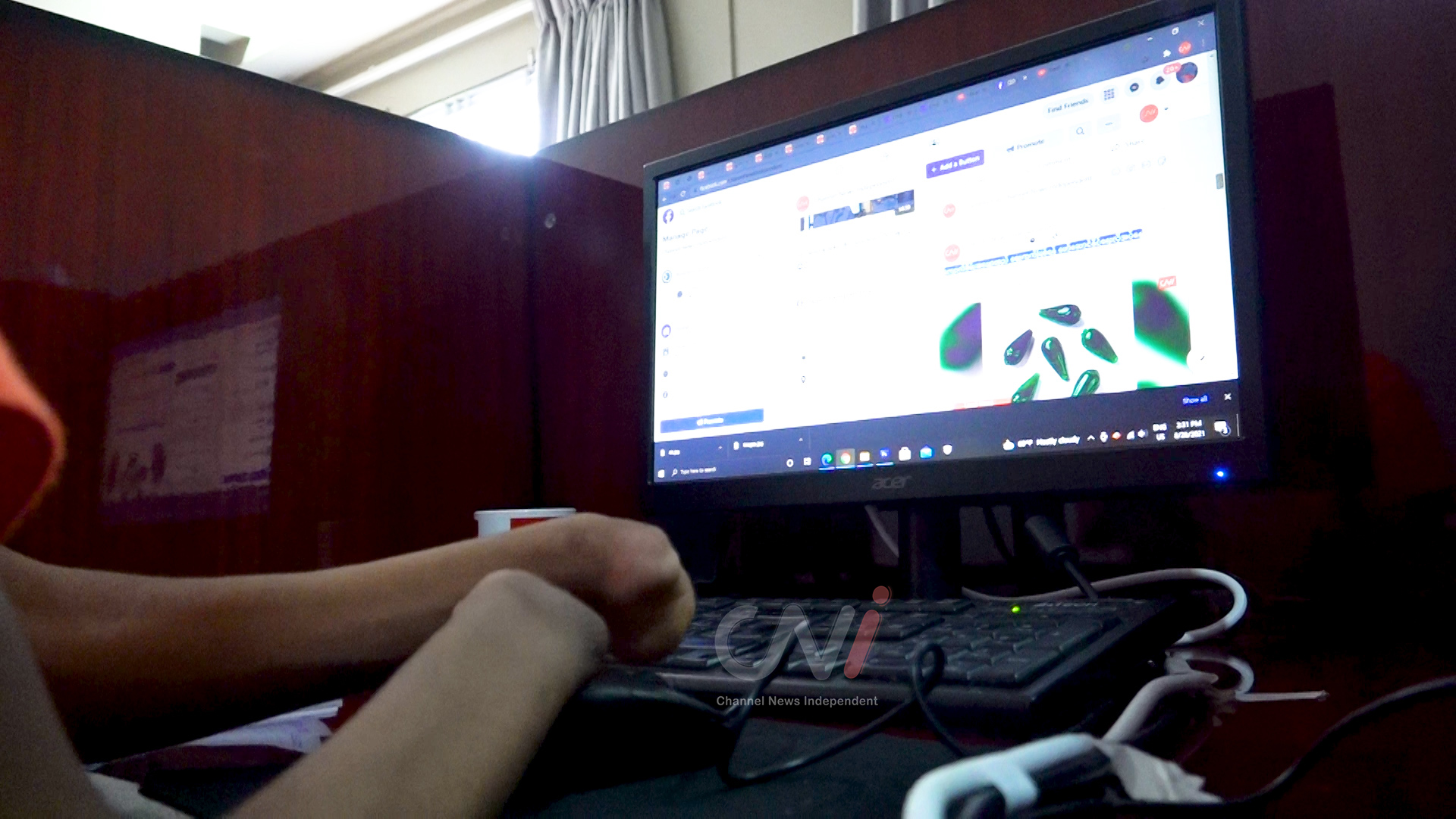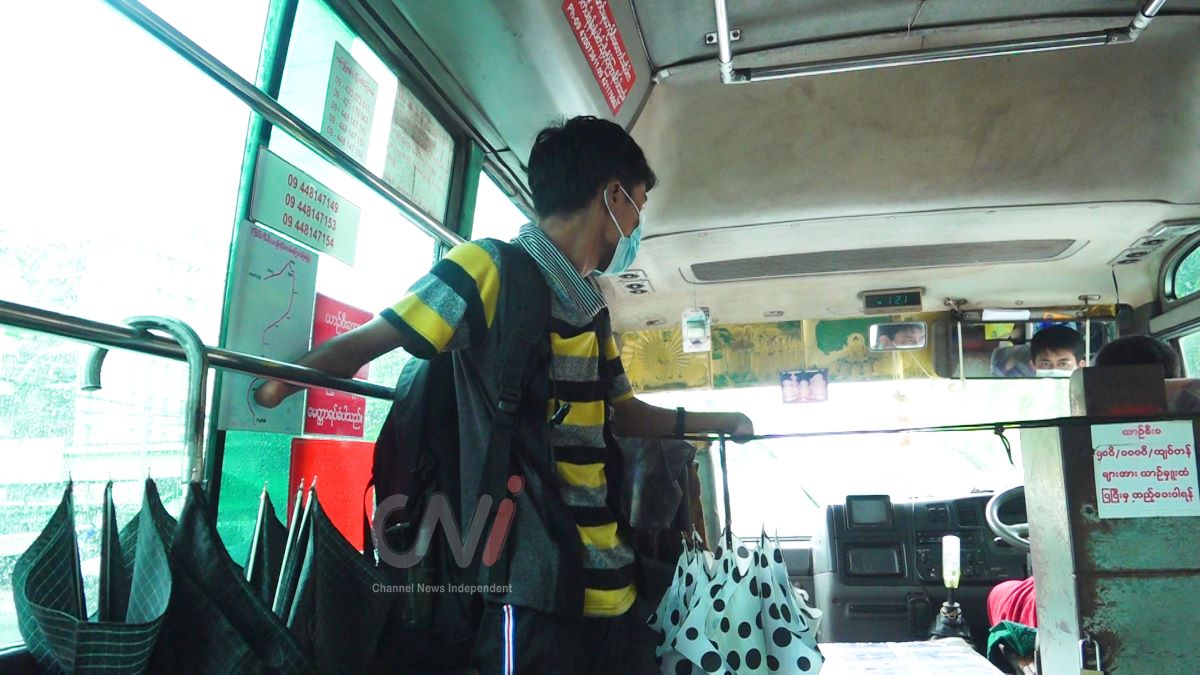CNI News
24 Sept 2022
Persons with disabilities in Myanmar are concerned about their safety and basic needs due to COVID-19 and the political crisis, Assistant Officer U Aung Thu of the Shwe Mintha Foundation told the CNI.
Persons with disabilities should not go out alone nor wear jewellery because it is dangerous for them, he added.
U Aung Thu told the CNI, “There are many problems for safety because one of my younger brothers in our office was robbed of his gold ring and phone on his return home at about 8 pm. He was even hit and beaten. We are not safe. We are more worried about our safety than others because we cannot run away easily and we cannot defend ourselves. We are extremely worried about our safety. However, we are not the only group that is not safe. No one is safe at the moment.”

A person with disabilities preparing snacks.
Currently, the foundation is organizing training courses on cooking and beverages for the livelihood of the people with disabilities.
In the past, persons with disabilities were not worried about their living and were able to get jobs as well as cash assistance but many businesses were shut down due to COVID-19. As a result, they no longer find jobs and face hard times for their livelihoods.
Rising prices of foodstuffs and consumer goods hurt people from all strata of life but they hit harder on persons with disabilities, Vice Chairman U Ko Ko Maung of Soneseeyar Association for Persons with Disabilities in Hlaingtharyar told the CNI.

A person with disabilities using a computer.
He said, “The situation hit persons with disabilities harder. They face hardship in every aspect of their lives including basic needs and health. As they can’t afford food for themselves, how can they take care of their health? So, some persons with disabilities work outdoors but they have to struggle harder than others.”
Currently, the association cannot provide food sufficiently as the number of donors has decreased gradually.
Therefore, there are more than 2 million persons with disabilities in Myanmar, according to the 2014 household census.




